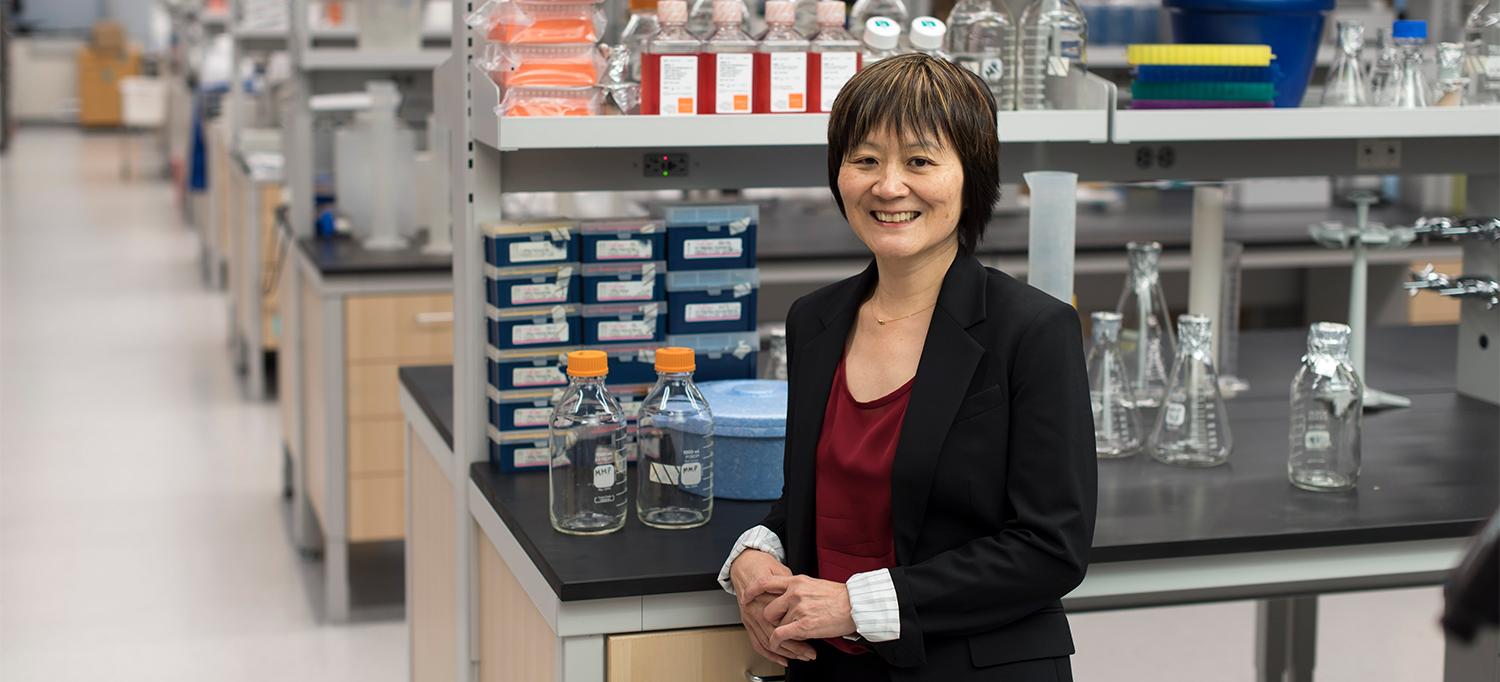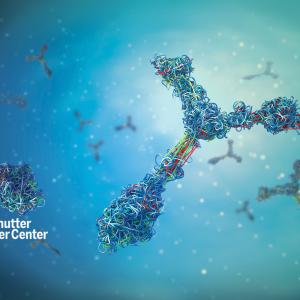
Naoko Tanese, PhD
Photo: NYU Langone Staff
Naoko Tanese, PhD, is associate dean for biomedical sciences and director of Vilcek Institute of Graduate Biomedical Sciences, part of NYU Langone. Here, Dr. Tanese discusses her love of science, being a superhuman multitasker, and the importance of supporting aspiring researchers as early as possible.
Tell us a little about your upbringing.
I was born in Japan. I came to the United States in high school as an exchange student, and I’ve been here ever since. So I guess you can call me a first-generation immigrant. I stayed here and completed my education. My family stayed in Japan. Children are expected to care for their aging parents in Japan, but my parents were exceptional in that they never put pressure on me to return. It was only much later that I truly appreciated how unusual they were in allowing me to follow my own path.
How did you get interested in science?
My father was a doctor and a scientist. While he didn’t teach me science, I was exposed to these fields through him, and I just had this natural affinity. I considered going into medicine, but felt like my calling was helping the population through scientific discoveries—when it comes to improving health on a large scale, science is the solution. The pandemic has been a tremendous example of science rising to this challenge that humankind is facing. The power of science is incredible—I knew that was what I wanted to do.
How do you think staying in the United States affected your career?
I didn’t think about discrimination against women when I was growing up in Japan. I went to an all-girls high school, and my peers had a lot of promise. I figured if I stayed there I would go very far. I later learned that my classmates in Japan, who were extremely smart, had to take really difficult exams but ended up with menial jobs. Women who got so much education weren’t able to realize their professional potential. Women scientists in Japan still experience serious discrimination and don’t receive the respect they merit. I realize that had I stayed, it would have been very hard to pursue the same type of career I’ve had here.
Given your passion for research, was it a hard decision to take on a leadership role at the graduate school?
I didn’t apply for my current job—when Dr. Dafna Bar-Sagi asked me if I would be interested, I hadn’t even considered it. But I knew this position was going to be really important. The graduate program was very good, but I could see the opportunity for it to be even better. As a faculty member you don’t have influence over the program as a whole, but this position would allow me to make an impact. I knew all the faculty and the administration, and many of the students. I had ideas for new initiatives. I wanted to restructure the PhD training programs and the admissions process to help recruit qualified candidates. I was also interested in improving the mentor–mentee relationship through training. I had some confidence that I could make this work.
What skills from the lab have helped you be a better leader?
Multitasking—you have to manage and compartmentalize many things at the same time and maintain awareness without getting overwhelmed. I am a fanatical baker. I used to bake for department parties, and I would have six recipes going at once, all at different stages and with multiple steps. It’s like experiments all going on simultaneously in the lab and thinking about what I need to do next. And there is a lot of that in my current role. Everything needs to happen at the same time, and you can’t fall behind on any of it. You need to be creative in thinking about what’s next, and that is also the way scientists think.
I don’t hold myself up as a role model because I’m on all the time. But when I get feedback from students that we made a difference, that energizes me and keeps me going.
How do we recruit and retain a more diverse group of future scientists?
We know in all fields that having diverse practitioners drives innovation and creates better solutions. It’s clearly going to take a long time to increase representation and have a scientific community in our country that reflects our population as a whole. Our graduate school is about two-thirds women, and that has been a trend for the past 10 years. Why many women don’t continue in research is a whole different issue that needs to be addressed.
To encourage underrepresented minorities to pursue biomedical sciences, we need to start early. Our Summer Undergraduate Research Program recruits college-age students who are also underrepresented minorities to help give them the skills and training they need to get into and get through graduate school. Many participants say the program is transformative. They never thought these opportunities were available to them and that can erode their confidence. It’s not that they aren’t good enough—they are not as well prepared as students who have grown up with access to resources and support.
The process of opening students up to careers in science and giving them the right tools needs to start in high school, or even earlier, to empower them. If we give them resources and opportunities, they can succeed.
Do you have advice for those pursuing a career in research?
Ask for help, identify mentors, and get support. When I was pursuing science as a student, the importance of mentoring was not yet recognized, and I definitely could have benefitted from it. There are issues you may not be able to solve on your own. It really helps to talk to someone you respect and feel you can trust.
Different people have different degrees of confidence in the early stage of their careers. I tell them to advocate for themselves. Put yourself in the center and empower yourself. Tell yourself that you can do this.
I just want students to have the opportunities that they deserve and help them find a path. Life is a marathon. We all want to achieve lofty goals immediately, but that is not the reality. You have to keep pushing yourself and you’ll get there.

